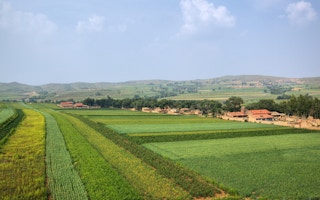China’s top policy priorities for 2014 will be improving the rural environment and maintaining food security, according to a a key policy document published by the official Xinhua news agency on Sunday.
The “number one document”, issued every January by the Central Committee of the Chinese Communist Party, sets the country’s policy priorities for the year, and has focused on rural matters every year since 2003.
This year’s document also focused on the development of “modern agriculture” and laid out improvements to the way the countryside is governed. However, hopes that Beijing would explicitly relax a longstanding 95-percent food self-sufficiency target and open the floodgates for more imports appear to have been dashed.
The document said China would continue to pursue “basic grain self-sufficiency” while increasing the use of overseas markets and allowing an “appropriate” amount of imports, but it stressed it “would not relax domestic food production at any time”.
Beijing has been preoccupied with cleaning up urban pollution following a spate of severe smog problems, but has also acknowledged that industrial contamination of water and soil, together with the overuse of pesticides and fertilizer, has caused severe environmental problems in the countryside.
The fight against rural pollution is also part of China’s efforts to ensure it has enough farmland, water and rural labor to feed a growing urban population without having to turn to overseas markets.
Xinhua, citing the policy document, said China would seek to resolve environmental constraints such as water shortages.
It would also work over the rest of the year to strengthen food security, set up mechanisms to ensure sustainable rural development and deepen reforms to allow the transfer of land.
Around 3.33 million hectares of farmland is now too polluted to grow crops, China said at the end of last year.
Rejuvenating contaminated land will help China ensure that at least 120 million hectares of land is reserved for farming, a policy known as the “red line”.
China’s rapid urbanization has cut surplus farm labor and boosted incomes, but the government worries a dwindling rural workforce will be incapable of producing enough food to meet growing demand.
So it has sought ways to spur farmers to stay on their land, by providing subsidies and investing in rural infrastructure.
China has to work to improve conditions in the countryside in order to stop an exodus of rural workers into the cities, Agriculture Minister Han Changfu told Xinhua last year.
“Chinese farmers want to move to the cities, but it is not possible for them all to do so, and it is even less possible for them all to move into the big cities, so we must plan urbanization and rural construction accordingly and build homes that allow rural people to live a happy life,” he said.










